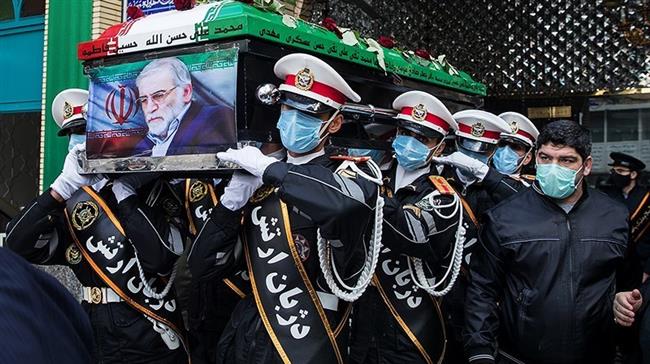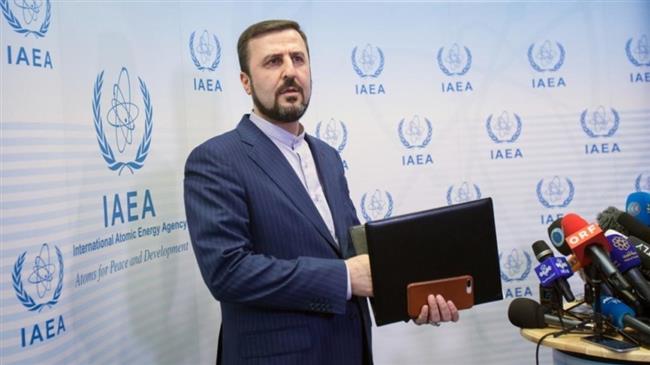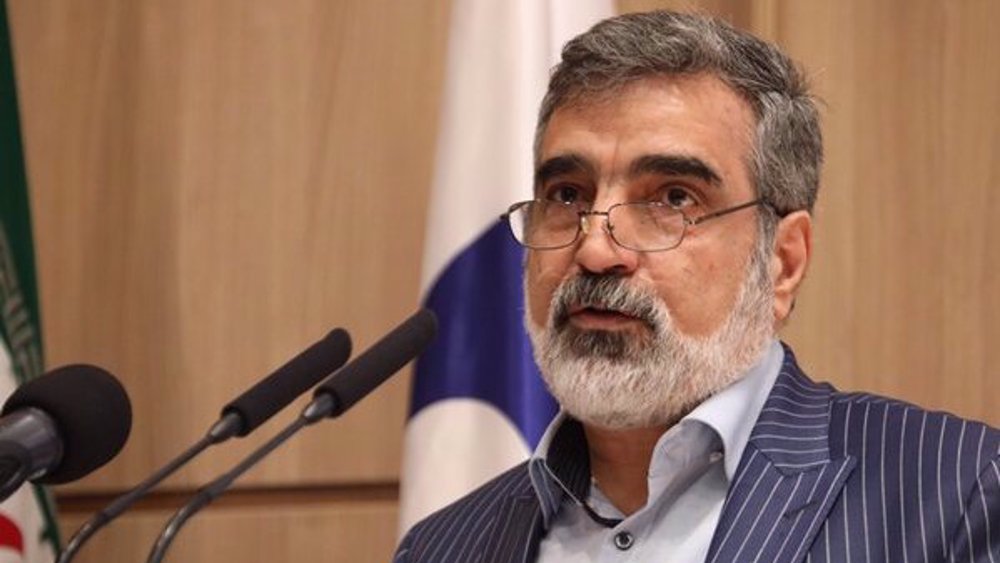MP vows 'massive response' by Iran to any Israeli sub in Persian Gulf
Iran will not hesitate to give a "strong and massive" response to any Israeli submarine in the Persian Gulf, a lawmaker says, after the Washington Post claimed that Tel Aviv was sending one to the strategic waters.
“Israel must know that our response to aggression against our national security will be strong and massive,” spokesman for the Iranian parliament’s National Security and Foreign Policy Committee Abolfazl Amouei was quoted as saying.
On Wednesday, the Post reported that an Israeli submarine had embarked for the Persian Gulf as a warning to Iran and that Israel was preparing for a battle amid rising hostilities.
Speaking to Qatar's Al Jazeera network, Amouei said, “Israel is looking for excuses to drag the region into a tension that creates chaos in the last days of the Trump presidency.”
Hidai Zilberman, an Israeli army spokesman, recently told Saudi Arabia's Elaph news outlet that Israel was tracking Iranian movements around the region, and Israeli submarines were quietly “sailing everywhere.”
Earlier this month, the US military sent two B-52H bombers to the Middle East on a short-notice mission. It also moved the USS Nimitz aircraft carrier back into the Persian Gulf along with other warships.
US naval and air assets, meanwhile, conducted joint exercises with the Royal Saudi Air Force and Royal Saudi Navy in the Persian Gulf, the fifth such exercise this year.
The Politico website cited a military official as saying that the US military was on heightened alert and shoring up its forces in the Middle East.
Gen. Frank McKenzie, the head of US Central Command (CENTCOM), said, "We do not seek conflict, but we must remain postured and committed to respond to any contingency or in opposition to any aggression.”
The show of force comes ahead of the first anniversary of the US assassination in Baghdad of the Middle East's iconic anti-terror commander General Qassem Soleimani, who was the head of Iran's Quds Force.
Iran has pledged that its real retaliation has yet to come, after it hit two US military bases in Iraq with a volley of precision missiles on January 8 to send a message.
Rear Admiral Alireza Tangsiri, commander of Iran’s Islamic Revolution Guards Corps (IRGC) Navy, has said all Iranian forces, including the IRGC Navy, are fully prepared to respond to any threat.
Tensions in the region rose to new heights after Mohsen Fakhraizadeh, a prominent Iranian nuclear scientist, was assassinated in Absard city north of Tehran on November 27.
The Islamic Republic has blamed Israel for the assassination, citing the regime's history of assassinating Iran’s nuclear scientists, as well as PM Benjamin Netanyahu’s mentioning of Fakhrizadeh’s name as a threat to be remembered, while accusing Iran of developing a nuclear weapon at a press conference in 2018.
Iran has also vowed to exact vengeance on the perpetrators at an appropriate time.
In his interview, Amouei said he was sending a clear message that if the Israeli submarine arrives in the Persian Gulf, “it would be an amazing target for us.”
The lawmaker also warned neighboring Arab countries that bringing Israel too close to Iran’s borders might create problems for them.
He was making a reference to the countries that recently inked normalization agreements with the Israeli regime under the Trump administration’s pressure.
So far, the UAE, Bahrain, Sudan and Morocco have agreed to forge formal diplomatic relations with Israel. Saudi Arabia, which encourages Arab countries to normalize ties with the Israeli regime, is also expected to join in.
Iran regards the normalization deals as a threat to its national security and regional peace.
Hossein Amir-Abdollahian, a senior foreign policy advisor to the Iranian parliament speaker, Thursday derided the deals as a “ridiculous show”, with the only outcome of bringing about instability to the region.
VIDEO | Yemenis praise the military for its successful operations against Israel
VIDEO | Israel continues to bomb Gaza homes
VIDEO | An insider's view of the country: Meybod City in Yazd
‘All wars have rules. All of those rules have been broken’ by Israel
VIDEO | Report flags India’s violation of rights of Rohingya detainees
Turkey's foreign minister meets Syria's de facto leader in Damascus
VIDEO | US Syria plots
'Next to impossible' to rescue patients from Gaza's Kamal Adwan Hospital: Director
















 This makes it easy to access the Press TV website
This makes it easy to access the Press TV website